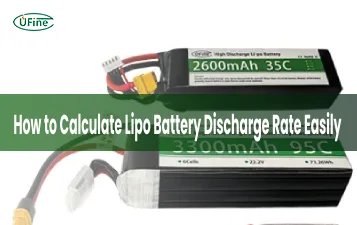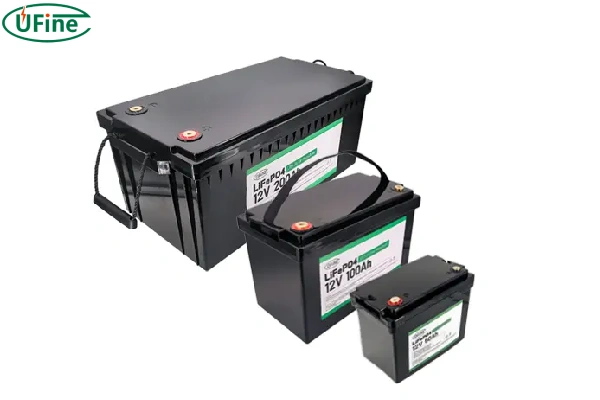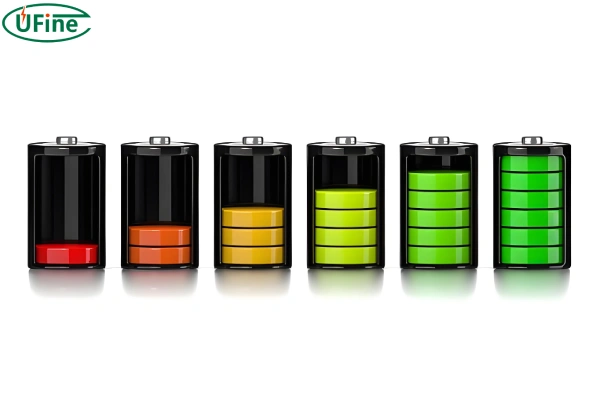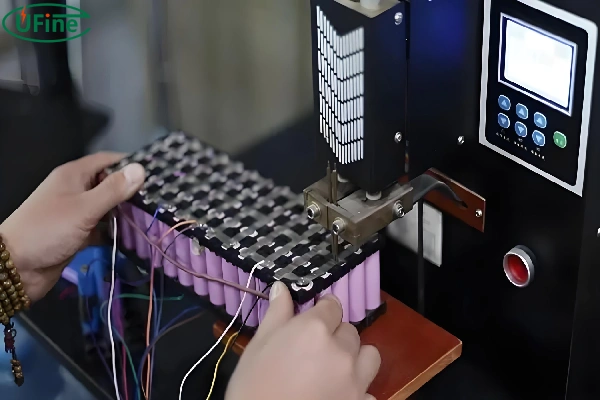12-volt batteries are the heart of many devices and vehicles. They’re essential for powering everything from cars to boats to home energy systems. But how long can a 12-volt battery last? This is a common question and a critical one, especially if you rely on these batteries for everyday use. In this comprehensive guide, we’ll explore the different types of 12-volt batteries, what factors affect their lifespan, which type lasts the longest, charging times, important parameters to consider when buying, and tips on extending their life. Let’s get started!
Part 1. Types of 12 Volt Batteries
12 volt batteries come in several types, each suited for different applications:
- Lead-Acid Batteries: Known for their reliability and affordability, lead-acid batteries are widely used in automotive, marine, and off-grid solar applications.
- AGM Batteries: Absorbent Glass Mat batteries are a type of lead-acid battery that offers maintenance-free operation and better resistance to vibration and shock.
- Gel Cell Batteries: Similar to AGM batteries but with a gelified electrolyte, they are ideal for deep cycle applications and have a longer lifespan compared to traditional flooded lead-acid batteries.
- Lithium-Ion Batteries: These batteries are known for their lightweight design, high energy density, and longer lifespan compared to lead-acid batteries. They are becoming increasingly popular for their fast charging capabilities and deep cycle performance.
Part 2. What Affects the Lifespan of a 12 Volt Battery?
Several factors significantly impact how long a 12 volt battery lasts:
- Battery Chemistry: Lithium-ion batteries typically have a longer lifespan than lead-acid batteries due to their ability to withstand more charge cycles and deeper discharges.
- Usage Pattern: Regular deep discharges and frequent recharges can shorten battery life. Batteries used in deep cycle applications tend to have a shorter lifespan compared to those used in standby or float applications.
- Temperature: Extreme temperatures, both hot and cold, can negatively impact battery performance and lifespan. It’s crucial to store and operate batteries within recommended temperature ranges.
- Maintenance: Proper maintenance practices, such as keeping battery terminals clean, ensuring adequate ventilation (for lead-acid batteries), and monitoring electrolyte levels (for flooded batteries), can significantly extend battery life.
Part 3. Which 12V Battery Lasts the Longest?
When it comes to longevity, not all 12-volt batteries are created equal. The type of battery you choose can significantly influence how long it will last.
1. Lithium-Ion Batteries
Lithium-ion batteries typically have the longest lifespan among 12-volt batteries. They can endure thousands of charge-discharge cycles and maintain their capacity better over time. With proper care, a lithium-ion battery can last up to 10 years or more, making it a great investment despite its higher initial cost. These batteries are ideal for applications where longevity and weight savings are crucial, such as in electric vehicles and portable power systems.
2. AGM Batteries
AGM batteries also offer a respectable lifespan, often outlasting regular lead-acid batteries. With proper use and maintenance, an AGM battery can last between 4 to 7 years. They are particularly well-suited for high-drain applications and environments where maintenance is difficult, thanks to their spill-proof and maintenance-free design.
3. Gel Batteries
Gel batteries have a similar lifespan to AGM batteries, generally lasting around 4 to 7 years. They are excellent for deep-cycle applications and environments with extreme temperatures. However, their specific charging requirements mean they need careful handling to avoid overcharging, which can shorten their lifespan.
4. Lead-acid batteries
Traditional lead-acid batteries usually have the shortest lifespan, typically between 3 to 5 years. Their longevity can be significantly affected by how well they are maintained. Regularly checking and topping off the electrolyte levels, keeping the terminals clean, and avoiding deep discharges can help maximize their lifespan.
Part 4. How Long Does a 12V Battery Take to Charge?
The time it takes to charge a 12-volt battery depends on several factors, including the battery type, capacity, and the charger used. Here’s a general overview:
1. Lead-acid batteries
Lead-acid batteries usually take the longest to charge. Depending on the charger and the battery’s capacity, it can take anywhere from 8 to 12 hours to reach a full charge. Using a smart charger that adjusts the charging rate can help optimize the process and prevent overcharging.
2. AGM Batteries
AGM batteries charge slightly faster than traditional lead-acid batteries. Typically, they take around 6 to 12 hours to fully charge, depending on the charger and battery capacity. Their ability to handle higher charge currents can reduce charging times, but it’s still essential to use a charger designed for AGM batteries.
3. Gel Batteries
Gel batteries can take a bit longer to charge, often between 12 to 16 hours. This extended time is due to their specific charging requirements to avoid overcharging and damaging the gelled electrolyte. Using a charger with a gel battery setting is recommended to ensure safe and efficient charging.
4. Lithium-Ion Batteries
Lithium-ion batteries are the fastest to charge among the 12-volt options. They can typically be fully charged in 4 to 6 hours. Modern lithium-ion chargers often include features that optimize the charging process, ensuring the battery reaches full capacity quickly without overheating or overcharging.
Part 5. What Parameters Should I Look at When Buying a 12 Volt Battery?
Choosing the right 12-volt battery involves considering several important parameters. Here’s what you should look for:
1. Capacity (Ah)
Capacity, measured in ampere-hours (Ah), indicates how much charge the battery can hold. Higher capacity batteries provide longer runtimes, which is crucial for applications requiring extended use. For instance, a battery with a 100Ah capacity can theoretically deliver 1 amp of current for 100 hours or 10 amps for 10 hours.
2. Cold Cranking Amps (CCA)
Cold Cranking Amps (CCA) is a measure of a battery’s ability to start an engine in cold temperatures. Higher CCA ratings are beneficial if you need reliable performance in cold weather. This is particularly important for vehicle batteries, as starting an engine in cold conditions requires a significant amount of power.
3. Voltage
Ensure the battery’s voltage matches your device’s requirements. While this guide focuses on 12-volt batteries, it’s essential to verify that 12 volts is what your application needs. Using a battery with the correct voltage ensures compatibility and optimal performance.
4. Lifespan
Check the estimated number of charge cycles or years the battery is expected to last. Manufacturers often provide this information, and it can help you compare the longevity of different battery types. A longer lifespan can justify a higher upfront cost if it means fewer replacements over time.
5. Size and Fit
Make sure the battery fits your device or vehicle’s battery compartment. Batteries come in various sizes and shapes, and it’s crucial to choose one that fits properly to avoid installation issues.
6. Brand and Warranty
Opt for reputable brands that offer good warranties. A solid warranty can provide peace of mind and protection against defects. Established brands often have better quality control and customer support.
Part 6. How to Extend the Lifespan of a 12 Volt Battery?
Maximizing the lifespan of your 12-volt battery not only saves you money but also ensures reliable performance. Here are some practical tips to help you get the most out of your battery:
1. Regular Maintenance
For lead-acid batteries, regular maintenance is key. This involves checking the electrolyte levels and topping them off with distilled water as needed. Also, inspect the battery terminals for any signs of corrosion. Clean them with a mixture of baking soda and water if necessary. Even though AGM and gel batteries are maintenance-free, it’s still a good idea to inspect them periodically to ensure they are in good condition.
2. Proper Charging
Use the appropriate charger for your battery type. Overcharging or undercharging can significantly reduce battery life. Smart chargers are excellent because they adjust the charging rate and prevent overcharging. For lead-acid batteries, avoid frequent deep discharges, as this can lead to sulfation. Instead, recharge them before they drop below 50% capacity. For lithium-ion batteries, try to keep the charge level between 20% and 80% to maximize longevity.
3. Avoid Extreme Temperatures
Temperature extremes can be harmful to batteries. High temperatures can cause the electrolyte to evaporate while freezing temperatures can cause physical damage and reduce capacity. Store and use your battery in a moderate-temperature environment when possible. In extreme conditions, consider using battery insulation or heaters to maintain optimal temperatures.
4. Periodic Checks
Perform regular health checks on your battery. Use a multimeter to measure the voltage and ensure it’s within the recommended range. For more advanced diagnostics, you can use a battery tester that provides detailed information about the battery’s condition, including its capacity and internal resistance.
5. Proper Storage
If you need to store your battery for an extended period, follow these guidelines to ensure it remains in good condition:
- Charge Before Storage: Make sure the battery is charged to about 50-70% before storing it. This helps prevent self-discharge from dropping the voltage too low.
- Cool, Dry Place: Store the battery in a cool, dry place to minimize self-discharge and prevent damage from humidity.
- Periodic Recharging: For lead-acid batteries, recharge them every few months to prevent sulfation. Lithium-ion batteries should also be checked periodically and recharged if the voltage drops significantly.
6. Use Battery Insulators
If your battery is exposed to extreme conditions, consider using battery insulators. These are designed to protect the battery from temperature fluctuations, which can help maintain its performance and extend its lifespan.
7. Avoid Overloading
Ensure that the battery is not overloaded. Overloading occurs when the power demand exceeds the battery’s capacity, which can lead to overheating and damage. Use the battery within its specified limits and consider using multiple batteries in parallel if your power needs are high.
8. Monitor and Manage Discharge Cycles
For deep-cycle applications, managing discharge cycles can significantly extend battery life. Try to avoid fully discharging the battery frequently. Instead, recharge it before it drops too low. This is particularly important for lead-acid batteries, which can suffer from sulfation if deeply discharged regularly.
9. Invest in a Battery Management System (BMS)
A Battery Management System (BMS) can monitor and manage the health of your battery. It ensures that the battery operates within safe parameters, preventing issues like overcharging, undercharging, and overheating. A good BMS can significantly extend the lifespan of your battery, especially for lithium-ion types.
10. Regular Usage
Batteries tend to last longer when they are used regularly. If a battery sits unused for an extended period, its capacity can diminish over time. Regularly using and recharging your battery helps keep it in good working condition.
11. Use the Right Battery for the Applicatiohow
Choosing the right battery for your specific application is crucial. For instance, using a deep-cycle battery to start an engine can shorten its lifespan, as it’s not designed for high current bursts. Similarly, using a starter battery for deep-cycle applications can lead to premature failure. Make sure the battery type matches its intended use.
Understanding how long a 12-volt battery can last and the factors that affect its lifespan can help you make informed decisions. Whether you are using it for a car, boat, RV, or renewable energy system, choosing the right type of battery and maintaining it properly is essential. By following these tips and guidelines, you can maximize the performance and lifespan of your 12-volt battery, ensuring reliable power for your needs.
Related Tags:
More Articles

LiPo Battery Discharge Rate Guide & Calculation Tips
Understand LiPo battery discharge rates, C-ratings, and how to calculate max current. Essential guide for RC, drones, and electronics users.
High‑Capacity 3S LiPo Batteries: 5000 mAh vs. 10000 mAh
Compare 3S LiPo 5000mAh vs 10000mAh batteries by weight, power, and use. Find the best fit for your drone, RC car, or boat setup.
Top 5 Applications for Small 3S LiPo Batteries
Small 3S LiPo batteries power drones, RC gear, wearables, and robotics with high energy and low weight. Making them ideal for compact electronics projects.
Building and Charging Your Own 3S LiPo Pack: A Step‑by‑Step Guide
Learn how to build, balance, and charge a 3S LiPo battery pack safely at home with this complete DIY guide for hobbyists and beginners.
How to Choose the Right LiPo Battery Plug Type?
Discover the best LiPo battery plug types, how to choose them, and expert tips for safe usage, soldering, and maintenance.






